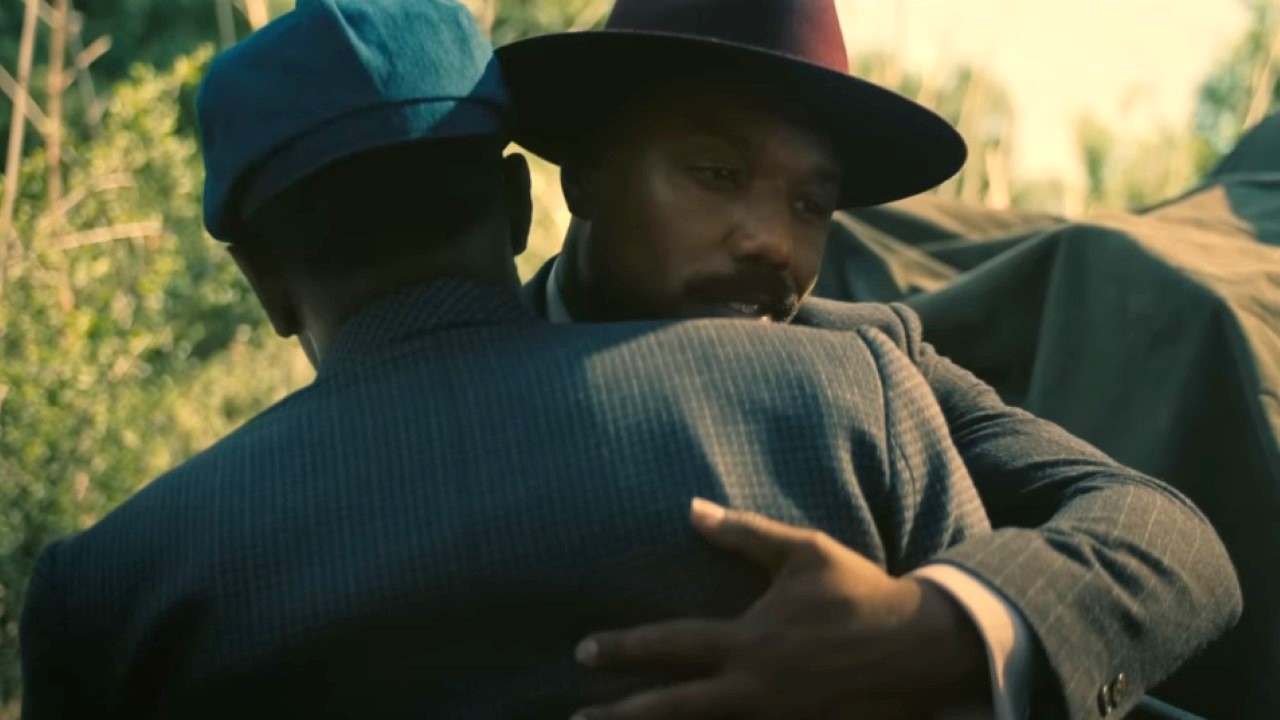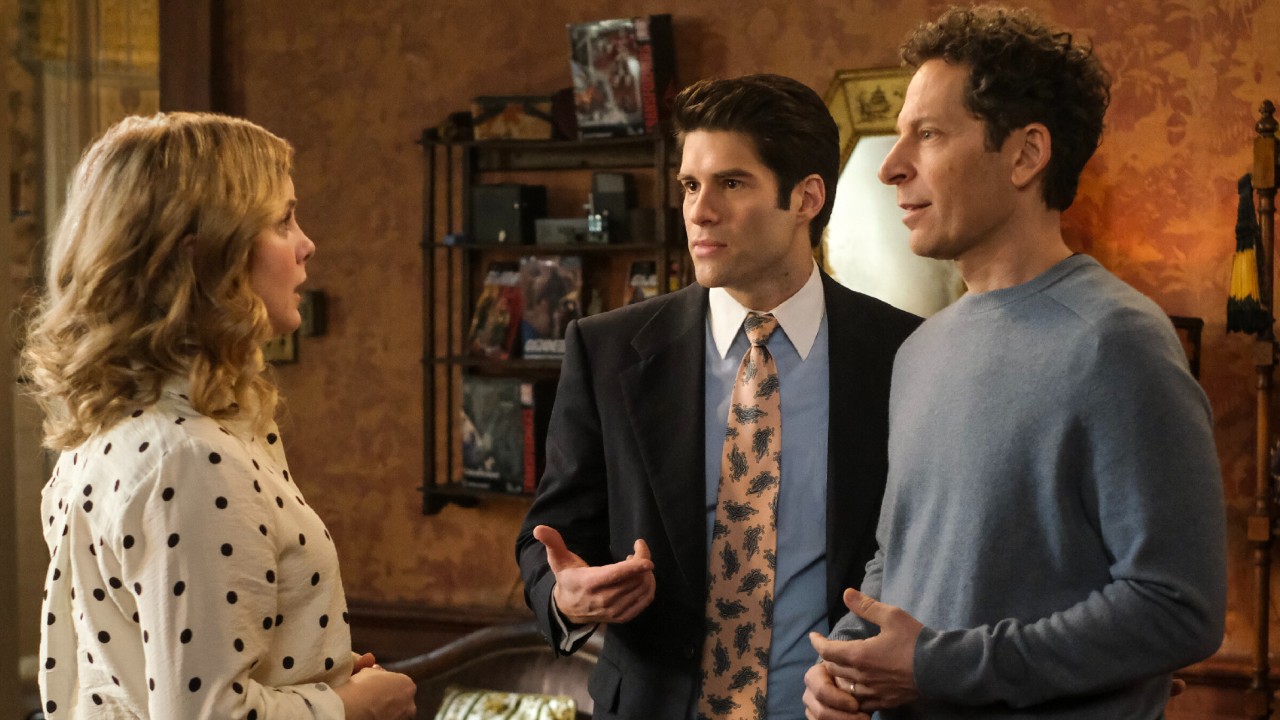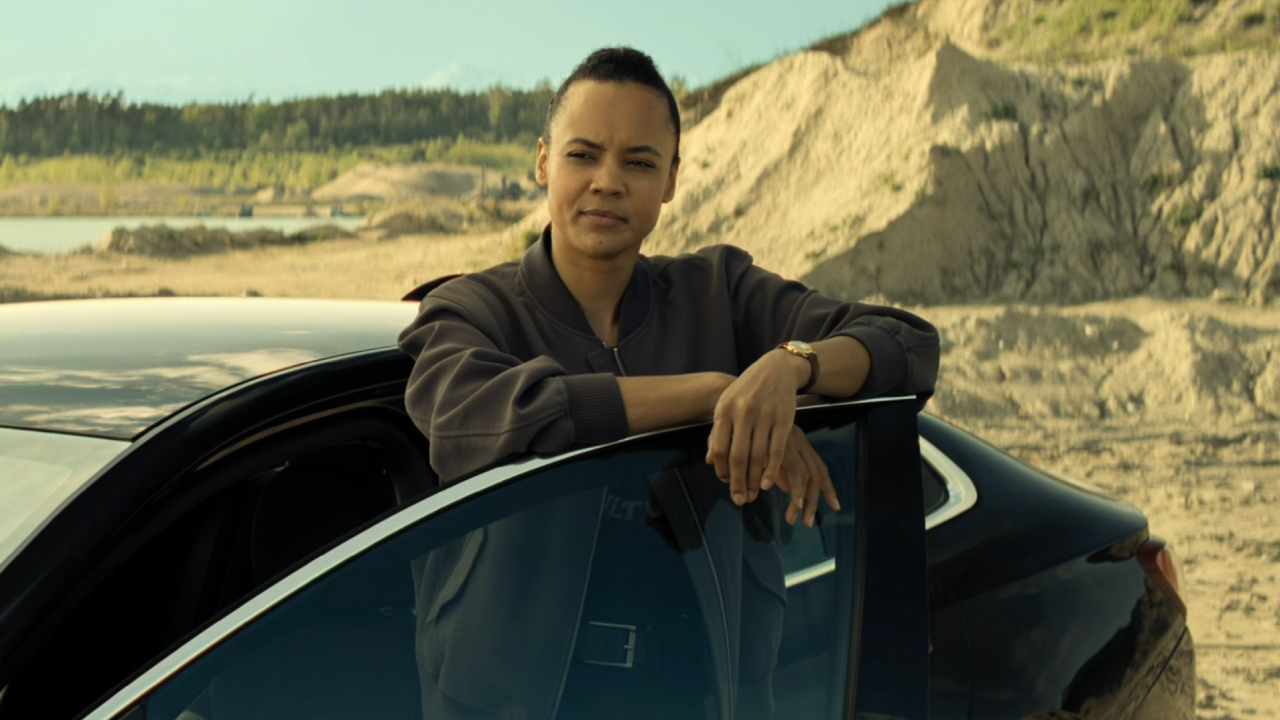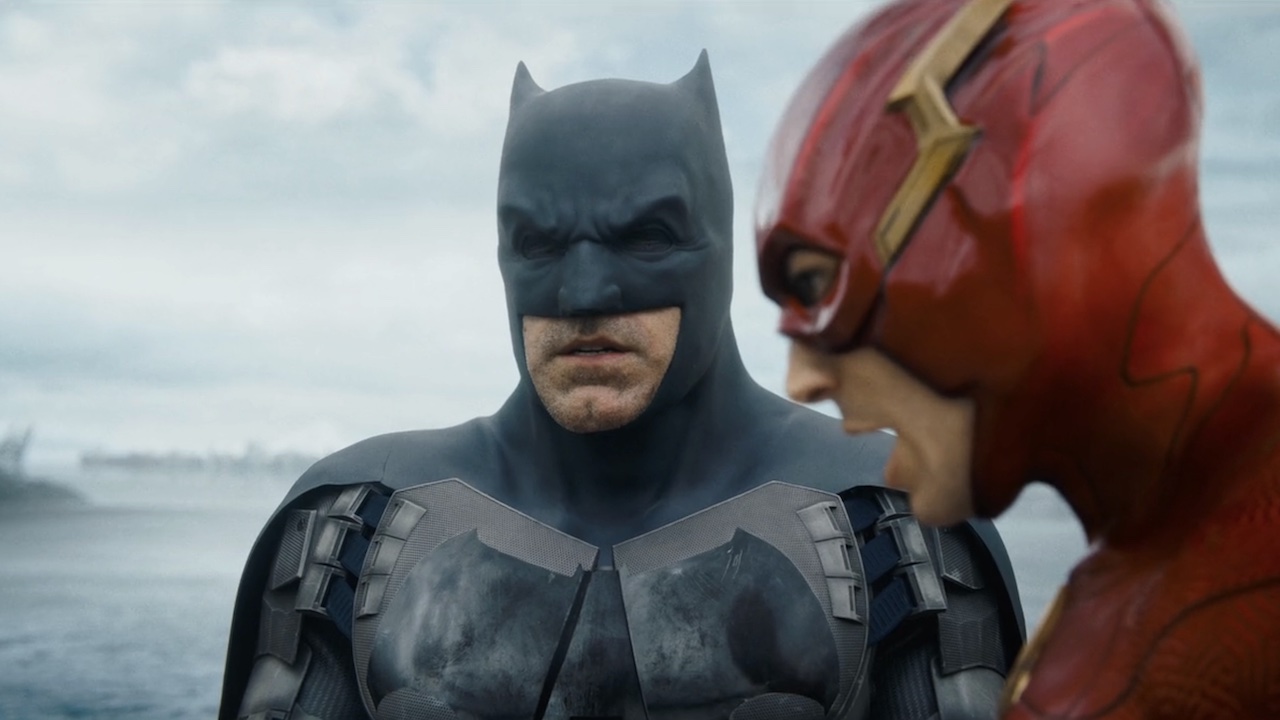The Simpsons Writer Sensibly Defends Show After Viewers Complain About Continuity Errors
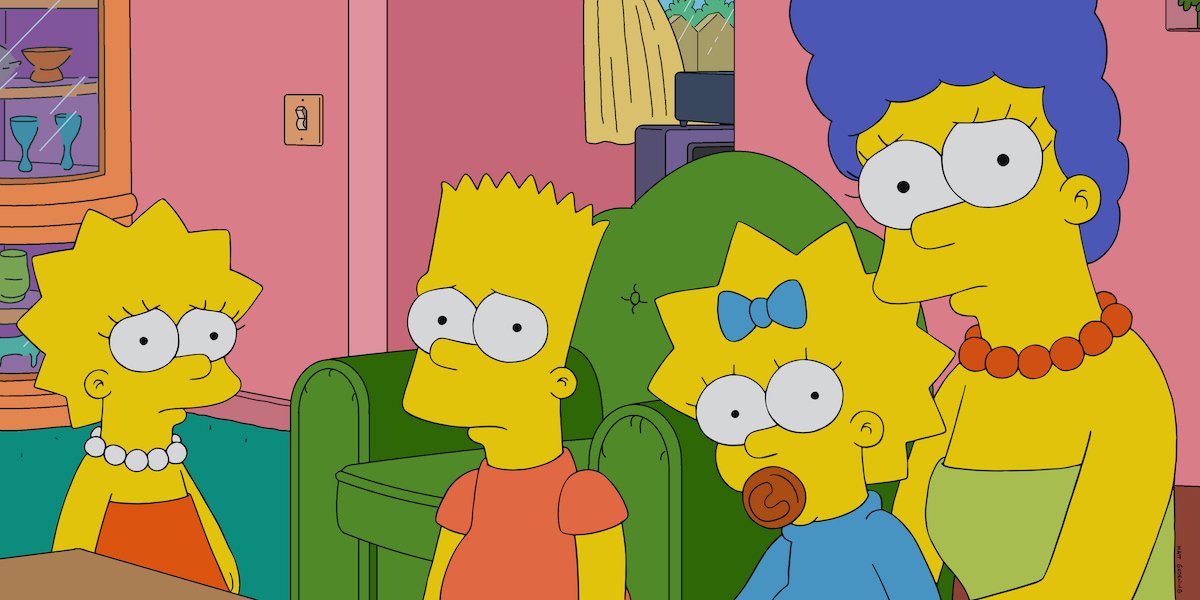
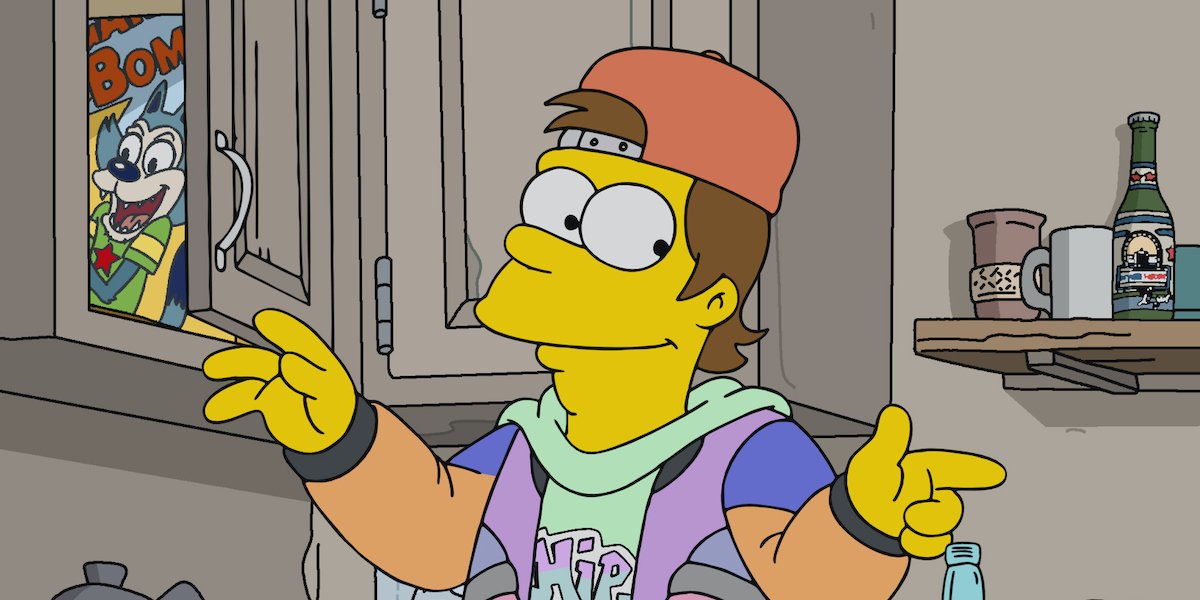
The Simpsons has been bringing fans its signature brand of humor and world-building for more than 30 years now, and no matter how many times the characters experience birthdays, Christmases or last days of school, no one ever ages, and the status quo remains intact. Still, there will always be some viewers who don't adhere to that brand of thinking and assume that the animated comedy needs to adhere to some form of storytelling canon. But after recent complaints about so-called continuity errors, one Simpsons writer gave a plainly stated explanation for why that line of thinking is misinformed.
The recent episode "Do Pizza Bots Dream of Electric Guitars," which brought in J.J. Abrams as a guest star, featured a flashback to Homer's teenage years working at a Chuck E. Cheese-esque chain called Razzle Dazzle's Pizza-Tainment Palace. The flashback centered on one of the animatronics singing rap and hip-hop, with Homer's clothing definitely placing the timeline in the early 1990s. Perhaps unexpectedly, some fans took to social media to question how Homer could be a teen in the '90s when he was previously shown to be a teen in 1970s-centered flashbacks. And here's how longtime writer Matt Selman responded:
Continuity Alert: Sunday's The Simpsons playfully re-interprets the show's timeline to allow Homer to be a teenager in the early '90s — The Simpsons is a 32-year-old series where the characters do not age, so the 'canon' must be elastic / contradictory / silly. . . . This does not mean other beloved classic The Simpsons flashback shows didn't happen. None of this happened. It's all made up. Every episode is its own Groundhog Day that only has [to] make sense for that story (if that).
By and large, there are plenty of Simpsons fans who understand that the show doesn't actually utilize a structured timeline, and 99% of the things that happen in one episodes have zero reflection on anything that comes next or came before. There are obviously certain examples where story elements carry over from one episode to the next, such as Maude Flanders and Mrs. Krabappel's deaths, but most of the details aren't meant to be seen as permanent. If they were, Homer and Marge would be in their 70s and the kids would all be full-grown adults and living their own lives. Do I wish that there was a spinoff of Ralph Wiggum in his 30s? Yes, obviously, but it's not going to happen.
Even though TV viewers will always project their own ideas, wishes and hopes onto series and their characters, The Simpsons has spent decades proving that it doesn't adhere to fan desires, and that it generally runs on randomness. Matt Selman continued, pointing out a strange double standard inherent to fans' defense of the show featuring true continuity.
There is no The Simpsons 'canon' or 'non-canon.' There are only stories. If all these crazy things really happened to one family the characters would be in a mental hospital. . . . If you love, hate or are completely indifferent to our Silly Putty paradoxical continuity, thank you so much for watching / caring about The Simpsons at any point in its 100000 years of existence.
If someone really wants to go to bat to fight for Homer Simpson "truly" growing up during the 1970s, that person should also be expected to prove how Homer survived his fall down the gorge without dying 17 times over, or how he and Bart have survived a bunch of other injurious scenarios without lifelong setbacks. Or why characters have completely different voices than they used to. Or lots of moments in the show's crossover episodes.
All of this isn't to say that The Simpsons hasn't featured its share of mistakes over the years, but that just because someone thinks a timeline issue is an error doesn't mean that it definitely is. I guess there's a different argument to be made for why the show's predictions aren't exactly predictions, but that's for another time.
The Simpsons airs Sunday nights on Fox at 8:00 p.m. ET.
CINEMABLEND NEWSLETTER
Your Daily Blend of Entertainment News

Nick is a Cajun Country native and an Assistant Managing Editor with a focus on TV and features. His humble origin story with CinemaBlend began all the way back in the pre-streaming era, circa 2009, as a freelancing DVD reviewer and TV recapper. Nick leapfrogged over to the small screen to cover more and more television news and interviews, eventually taking over the section for the current era and covering topics like Yellowstone, The Walking Dead and horror. Born in Louisiana and currently living in Texas — Who Dat Nation over America’s Team all day, all night — Nick spent several years in the hospitality industry, and also worked as a 911 operator. If you ever happened to hear his music or read his comics/short stories, you have his sympathy.



